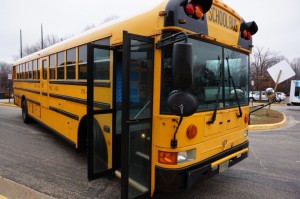
Reston Woman Dies After Car Crash — Stephanie D. Garcia, 29, of Reston died at Fairfax Inova Hospital on Aug. 8 from injuries she sustained the previous day in a two-car crash on I-95 at the 169-mile marker in Springfield. Reportedly not wearing a seatbelt, Garcia was thrown from her car when another vehicle struck it head on while she was making a U-turn. The other driver was transported to a hospital for treatment of serious injuries. [Virginia State Police]
D.C. Restaurant Week Returns — The Restaurant Association Metropolitan Washington’s summer D.C. Restaurant Week kicked off yesterday (Monday) and will last through Sunday (Aug. 15), with many participants again offering to-go options. Reston-area venues include Founding Farmers, Makers Union, The Melting Pot, and more. [Viva Tysons]
Construction on Autumnwood Pickleball Courts Begins — “Construction has begun on the permanent pickleball courts at the Autumnwood Recreation facility. Pickleball players have been temporarily moved to courts 3 and 4. Tennis will no longer be played at Autumnwood until the new pickleball courts are finished in September. When construction has been completed, tennis will resume at Autumnwood.” [RA News]
General Assembly Approves COVID Relief Plan — “The General Assembly on Monday approved a spending plan for $4.3 billion in federal coronavirus relief money, with lawmakers leaving about $1.1 billion unappropriated so it is available for future needs if the pandemic worsens…The plan calls for using $800 million of the American Rescue Plan money to replenish the state’s unemployment trust fund, $700 million for rural broadband, $411 million on clean-water projects, $353 million for small-business relief and $250 million for school ventilation systems.” [The Washington Post]
Photo via vantagehill/Flickr

Virginia is reconsidering the future of funding for transportation infrastructure, as the rise of electric and more fuel-efficient vehicles has cut into the gas tax revenue that helps pay for those projects.
One option the Commonwealth has started pursuing is a “mileage-based user fee” that drivers would pay depending on how much or little they travel. Drivers could opt into the voluntary system in lieu of paying a mandatory highway user fee that first took effect on July 1, 2020.
State Sen. Janet Howell (D-32nd District) says the highway use fee — which applies to cars that average at least 25 miles per gallon and is calculated based on the fuels tax at the time of a vehicle’s registration and the average number of miles it travels in the state — is a precursor to Virginia’s planned mileage-based user fee program.
“For most of the past decade, Virginia, like the rest of the country, has been wrestling with the challenge of identifying the best approach to generating sufficient revenues to support transportation investments,” she said in a statement. “As cars have become more fuel efficient and electric vehicle adoption increases, it is increasingly difficult to strike the right balance of raising adequate revenues from traditional sources and adhering to a usage-based philosophy of highway financing.”
The Virginia Department of Motor Vehicles is currently fielding requests from private contractors to operate the program, which it anticipates rolling out in July 2022. Led by the DMV, a workgroup tasked with developing the program is slated to deliver an interim report to the Commonwealth this December.
The working group is identifying all requirements to Virginia’s mileage-based user fee program with “a priority on consumer privacy protection and equity,” DMV spokesperson Jessica Cowardin said in a statement.
Seeking new ways to fund road repairs and transit projects, Virginia established the mileage-based fee program in April 2020 when the General Assembly adopted a major transportation bill that also established the highway use fee and raised gas taxes for the first time in more than three decades.
The bill also lowered vehicle registration fees by $10 and repealed an annual $64 fee for electric and alternative fuel vehicles.
The changes, which include tying the gas tax rate to the Consumer Price Index to keep up with inflation starting next year, will help Virginia diversify its funding sources to offset stagnant or declining gas tax revenue, state legislators say.
The consultant KPMG previously estimated that Virginia would lose nearly 33% of its gas tax revenues by 2030 due to fuel efficiency, or approximately $260 million.
“Neither the [Highway Use Fee] nor the EV Registration fee are intended to suppress the sales of fuel efficient or electric vehicles, but simply recapture the average annual revenue from the foregone gas taxes,” Howell said.
The idea of taxing drivers based on how much they travel instead of the fuel they use has been gaining traction throughout the U.S. over the past decade.
Despite inflation, the federal gas tax rate has been locked in at 18.4 cents per gallon since it went up from 14.1 cents in 1993, meaning there’s less money to fund highway improvements.
“Many cars are not using gas at all, such as electric, so that system of highway finance has been coming apart for a long time,” said Jonathan Gifford, director of George Mason University’s Center for Transportation Public-Private Partnership Policy in Arlington.
If Virginia wants to encourage a transition to clean energy and electric vehicles, which “is absolutely essential to addressing climate change, we will need to look to other options” to pay for transportation projects, Northern Virginia Transportation Alliance President Jason Stanford says. Read More

Herndon Elementary to Host Vaccine Clinic Today — The Fairfax County Health Department will provide COVID-19 vaccinations at Herndon Elementary School from 3:30-7 p.m. today (Monday), as the county urges adolescents to get vaccinated in time for the upcoming school year. Appointments can be made for individuals 12 and older through the Vaccine Administration Management System. [FCHD]
Thomas Jefferson HS PTSA Put on Probation — The Virginia Parent Teacher Association has reinstated the president of Thomas Jefferson High School for Science and Technology’s Parent Teacher Student Association after she was ousted by opponents of admissions changes at the magnet school. The organization stopped short of revoking the PTSA’s charter in response to parents’ complaints about its leadership. [WTOP]
Virginia Will Support Small Businesses with Relief Funds — “Virginia Gov. Ralph Northam wants to use $353 million of the $4.3 billion in American Rescue Plan funds available to the state to help small businesses and industries hardest-hit by the COVID-19 pandemic…The General Assembly will oversee the allocation of the funds during a special session.” [Patch]
How Reston Residents Can Help Pollinators — Walker Nature Center manager Katie Shaw explains how bees and other pollinators support local ecosystems by fertilizing plants, but their populations are declining due to habitat loss, pesticides, climate change, and invasive species. Reston property owners can host bee hives if they get approval from Reston Association. [RA/YouTube]
Photo via vantagehill/Flickr
 This is an opinion column by Del. Ken Plum (D), who represents Reston in Virginia’s House of Delegates. It does not reflect the opinion of Reston Now.
This is an opinion column by Del. Ken Plum (D), who represents Reston in Virginia’s House of Delegates. It does not reflect the opinion of Reston Now.
In contrast to the federal government’s method of budgeting, the budget for the Commonwealth of Virginia is more than balanced. The state Constitution prohibits the borrowing of money for operations, and it requires a “rainy day fund” of reserve monies that can be drawn upon in an economic downturn. That is in part why the state has a perfect AAA bond rating giving it the best terms when monies are borrowed for capital projects.
Both the House and the Senate have completed work on their versions of the budget that was proposed by Governor Ralph Northam earlier this year. The two budgets will be reconciled in a conference committee that will resolve differences between the two. Total spending for the biennium will be about $48 billion in general funds raised through taxes. Individual and corporate income taxes provide three quarters of the revenue with sales tax providing about seventeen percent and additional smaller taxes making up the rest. General funds coming from taxes make up about 36 percent of total revenue. Non-general funds that consist of fees such as motor vehicle and gas taxes, college tuition, federal grants and other fees make up 64 percent of the budget.
Noteworthy features of the House and Senate budgets that are being reconciled and are subject to change before a final budget is adopted include a much needed increase in rates for personal care providers in Medicaid programs, an increase in developmental waiver disability slots by 1,135 in the Governor’s budget to 1,635 in the Senate version of the budget. While the increase will help, the number of persons on the waiting list still number in the thousands. The Governor and the House budgeted for 630 supportive housing slots for persons with serious mental illness while the Senate provided 1,630. Budget language provides for the establishment of a state-based exchange for health insurance.
The budgets of both houses provided for teacher raises as did the Governor’s budget. The amount differs in each with an expected three to four percent over the biennium. The ratio of counselors to students in the public schools will be improved. The Governor proposed a ratio of one counselor per 250 students. The House ratio is 325 and the Senate’s is 300. Likewise, the ratio of teachers for English learners will be improved. A major point of contention among the Governor’s and the House and Senate budgets is that only the House has proposed to restore the cost to compete funding for Northern Virginia schools because of the high cost of living in the region. The average per pupil direct aid for public school students ranges from $6,206 in the Governor’s budget to $6,297 in the House budget.
A major emphasis in the budget is an increased investment in preschool education that was championed by the First Lady. The Governor’s “Get skilled, Get a job, Give back” (G3) funding to provide tuition assistance to low- to moderate-income students who meet certain criteria is receiving significant funding. The Housing Trust Fund will receive a much-needed infusion of cash proposed in all the budgets.
File photo
 This is an opinion column by Del. Ken Plum (D), who represents Reston in Virginia’s House of Delegates. It does not reflect the opinion of Reston Now.
This is an opinion column by Del. Ken Plum (D), who represents Reston in Virginia’s House of Delegates. It does not reflect the opinion of Reston Now.
Newspaper headlines last week declared “State posts surplus of more than $500 million.” Such headlines about a “surplus” in Virginia’s budget appear with some regularity. I checked the meaning of “surplus” the old-fashioned way–in Webster’s Dictionary: “an amount or quantity in excess of what is needed.”
Hardly is the term surplus applicable to Virginia’s current situation. More accurately the excess cash the state had on the day it finalized its books should be termed an unappropriated balance or an amount of revenues received beyond the forecasted amount.
Why is the distinction I am making important? To suggest that the state has a surplus of money over what it needs is to totally discount unmet needs in the state that do not even make their way into budget consideration. It would be nice to have more money than needed allowing all taxpayers to get a refund. It is also important that the state not have to go into debt to meet current obligations.
A full assessment of the cost of government if the state met its clear obligations has never been made to my knowledge. Such an assessment would allow for an honest discussion of whether the state has a temporary receipt of cash beyond what it expected or has a surplus of cash beyond what it needs. I have ranted in this space before about my concern with the misleading way the state handles its budgeting.
I believe one example will make my point that there is no reasonable way the state could be considered to have a surplus when there are such outstanding unmet needs in the areas for which the state has a responsibility–that example is funding for public schools. On the same day that the half-billion dollar “surplus” was announced, The Commonwealth Institute issued a report, “State K-12 Funding in Virginia: Incremental Progress and Opportunities for Long-Term Solutions,” that found that if public schools were funded today at the same level they were in 2009 an additional three-quarter billion dollars would have been provided–all the surplus and about half that amount more.
Instead, school staffing in Virginia has declined by 1,242 positions while enrollment has increased by more than 50,000 students since 2009. A promise by the state to fund fifty-five percent of the cost of public schools with localities picking up the remaining forty-five percent has been flipped with localities having to pick up a much greater amount since the recession. Virginia ranks forty among the fifty states in the state funding it provides for public schools.
This example focuses on the inadequacy of the level of public school funding, but other examples could be given in the areas of mental health services and public health and safety. The conservative approach of forecasting revenue and the tight limitation on spending will keep Virginia with a more than balanced budget. If realistic state responsibilities were factored in, we could have a realistic balanced budget. Instead, we have underfunded programs and services with persons scratching their heads wondering how we could have a surplus with so much more left to do.
File photo
 This is an opinion column by Del. Ken Plum (D), who represents Reston in Virginia’s House of Delegates. It does not reflect the opinion of Reston Now.
This is an opinion column by Del. Ken Plum (D), who represents Reston in Virginia’s House of Delegates. It does not reflect the opinion of Reston Now.
As the General Assembly heads back into Special Session on May 23 to continue work on the biennium budget impasse, I looked back at how long we’ve been fighting to expand Medicaid–the major sticking point in our current budget standoff. Here’s what I wrote in September 2014 — nearly four years ago!
Recently the New York Times editorial board wrote about the “health care showdown in Virginia.” Their comments were not favorable. “In Virginia, there are 400,000 low-income people who can’t afford health care coverage but don’t qualify for federal subsidies,” they wrote. “If they lived across the state line in Maryland, West Virginia or Kentucky, which have expanded their Medicaid programs, they could get the coverage they need.” The reason they cannot; “a group of recalcitrant Republicans in the House of Delegates” have blocked Medicaid expansion at every opportunity.
Highly regarded retired editorial writer for the Virginia Pilot, Margaret Edds, wrote about the current impasse in Virginia two weeks ago. Drawing on her extensive command of Virginia’s history, Edds points out that Virginia was the last state to join Social Security in the 1930s.
She argues that there is a moral imperative that “we cannot afford to take this risk” of not expanding Medicaid. She writes that “designing a health care system that embraces everyone is the right thing to do.” Reston resident, Elliot Wicks, in a recent letter to the editor makes the same argument that closing the coverage gap morally is the right thing to do.
In an unprecedented move, the Virginia Chapter of the American Association of Retired People (AARP) called a press conference to announce that letters sent by the Speaker of the House and other Republican lawmakers to their constituents over age 60 contained “inaccurate information about changes in Medicare.”
These letters from Speaker Howell and other lawmakers implied that expanding Medicaid in Virginia would hurt Medicare beneficiaries. “Expanding Medicaid to uninsured Virginians won’t harm the Medicare program or its beneficiaries,” the AARP spokesperson said.
Revenues for the Commonwealth are expected to fall short of projection for this year by as much as $300 million. Ironically, Virginia is losing $5 million a day amounting now to three-fourths of a billion dollars paid by Virginians that could be returned to the state through Medicaid expansion. The money could not be used to balance the budget in the current year, but in future years more than $200 million that Virginia pays for indigent care from its general tax revenue could be paid by Medicaid.
State and local chambers of commerce, medical and healthcare associations, and editorial boards of the major newspapers in the state have endorsed Medicaid expansion. A major compromise in the form of Marketplace Virginia, proposed by three Republican senators and endorsed by all Democratic legislators, has been introduced. The compromise proposed in Marketplace Virginia addresses the Republicans’ stated concerns by including a provision to discontinue the program if the federal government reneges on its commitments.
It is time for Republicans in the House of Delegates to agree to the compromise. Their insistence on separating Medicaid from the state budget is a costly stalling tactic that is hurting a large number of Virginians and threatens to hurt even more if the budget stalemate continues.
While the players have changed — it’s now Senate Republicans resisting Medicaid expansion — the song remains the same.
 This is a commentary from Del. Ken Plum (D-Fairfax), who represents Reston in Virginia’s House of Delegates. It does not reflect the opinion of Reston Now.
This is a commentary from Del. Ken Plum (D-Fairfax), who represents Reston in Virginia’s House of Delegates. It does not reflect the opinion of Reston Now.
The best way I can describe the 2017 session of the General Assembly is to call it a mixed bag. Some good work was done for sure, but if not for the governor’s veto pen, it would have been marred by some backward legislation. Most disappointing are the missed opportunities that were not addressed in the 46-day short session.
Although budget matters are supposed to be dealt with only in the long, even-year session, there are budget adjustments that creep into the short session as well. The good news is that the Assembly passed amendments to the biennium budget to bring it back into balance from a $1.2 billion shortfall in revenue. There were reductions, but the governor proposed and the Assembly agreed to keeping 3 percent salary increases for state employees who have been without a raise for many years. Funds were provided for the state share of a 2 percent raise for teachers. Additional funds were provided to deal with the critical needs in mental health care.
Four bills were passed to deal with the opioid epidemic. They established needle exchange programs, increased access to the overdose drug naloxone, increased services to infants exposed to opioids in utero, and strengthened opioid prescription policies. Five million dollars was appropriated for permanent supportive housing for people who are homeless or at risk of becoming homeless because of mental illness. A bill to require insurance companies to cover a 12-month supply of prescription birth control also passed.
Of the bills I opposed, most will be vetoed by the governor. Not only did a committee in the House defeat my bill to require universal background checks for gun purchases, but it passed several bills to make access to guns easier. The Republicans do not have the supermajority that is needed to overturn the governor’s veto of these bills. Likewise, the governor is expected to veto a bill that would prevent localities from becoming “sanctuary” zones. He has already vetoed a bill that would have denied funding to Planned Parenthood, and the House was not able to override his veto.
Despite public support for establishing an independent system to draw legislative boundary lines, my bill and several others with that goal were defeated in a House committee. Bills that passed the Senate on this issue were defeated in the same House committee. The public support for legislation that would prevent legislators from being able to pick their own voters was as strong as I have seen on an issue in recent years.
Beware that a new law passed that creates a fine of $100 for failing to drive on the right side of the road. The intent of this new law is to prevent slow drivers from driving in the left lane. Legislation that would have created a bill of rights for college student loan borrowers did not pass.
Although the “short sessions” of the General Assembly held on the odd-numbered years are about two weeks less in length than the regular session in the even-numbered years because they do not consider a biennium budget, the fact is that the budget is adjusted at every session of the General Assembly.
Revenue projections that are made over a couple of years’ time frame almost always need to be adjusted. Revenues come over or under projections, necessitating corresponding changes to the budget. Recession-level declines like that in 2008 required severe budget reductions. The economic recovery has been slower than in the past, resulting in some tweaking being needed every year. The Commonwealth operates on a balanced budget with funds going into a rainy day fund when economic growth is strong, and the fund being used to smooth out declines from loss of revenue.
The House and Senate approved different versions of a revised budget for the next fiscal year without prolonged debate, which has been a part of these deliberations for many years. The governor presented a revised budget that brought the next year into balance and funded some high-priority items, upon which there was bipartisan agreement. Differences do remain that will be ironed out by a conference committee over the remaining weeks of the session.
Highlights of the budget include important new funding for mental health services. Although the needs in mental health have been recognized for a long time, it took advocates many years and the suicide of a senator’s son to finally get agreement on funding critically needed services. An important aspect of the new services will be to get mentally ill persons out of jails, where they have found themselves in recent years when they acted out and there was no other place for them to go.
State employees will finally be getting a raise after many years of waiting. The situation has become increasingly desperate with a high turnover rate. Teachers who are employed by local school boards will not be getting a direct appropriation for a raise from the state, but hopefully the modest increase to localities can be used in part to fund teacher pay raises that are likewise long overdue.
Although the action in the short session on the budget will get us through the next fiscal year, there are long-term structural issues that remain — particularly in funding education. While the division between state and local funding had historically been 60 to 40 percent, the actual division in recent years has been closer to 40 percent state and 60 percent local. The result has been that increasing costs have fallen on local property taxpayers.
Virginians like to brag about their low per capita state taxes at $2,275, 36th-lowest among the states. Sometimes overlooked is the fact that per capita local taxes in Virginia are $1,928, or 15th-highest among the states. We are going to balance the budget for the short run this session, but we need to do a lot more work about more fairly balancing the budget for the long term.
High Winds Cause Power Outages — Winds up to 60 mph have been striking the area, and a high-wind warning from the National Weather Service remains in effect until 6 p.m. tonight. More than 13,000 customers are reported without power this morning in Northern Virginia, including a handful in Reston. [Dominion Power]
‘Adopt a Hydrant’ Program Underway — Fairfax County Fire and Rescue is asking residents and business owners to maintain the areas around fire hydrants. Hydrants must be free of snow and ice in the winter, and free of weeds, leaves and shrubbery in warmer weather. [Fairfax County Fire and Rescue]
Teachers Likely to See More in Paychecks — The Virginia General Assembly is entering the final two weeks of its session, and it looks like teachers will get raises. The Senate budget plan provides raises for teachers, while the House would give schools more unrestricted money that could be used for raises. Gov. Terry McAuliffe has also proposed a 1.5 percent bonus for teachers and state workers. [WTOP]
Photo of sunrise over Reston this morning via Twitter user @JGS3584
 The 2017 Virginia General Assembly convenes today at noon in Richmond, but 11th-hour elections had some legislators up late last night.
The 2017 Virginia General Assembly convenes today at noon in Richmond, but 11th-hour elections had some legislators up late last night.
Two Virginia Senate seats were up for vote in a special election Tuesday, along with one House seat. Sen. Janet Howell (D-Fairfax) of Reston had a close eye on the races in her chamber, as a Democratic sweep would have put her in position to take the reins of the Finance Committee.
In the 9th District, representing the Richmond area, Democratic candidate Jennifer McClellan took an easy victory over a third-party opponent. But in the 22nd District, representing the Lynchburg area, Republican Mark Peake won by a large margin over Democratic candidate Ryant Washington. Both seats had been vacated by former state senators who were elected to the U.S. House of Representatives.
The results keep the Republicans in a 21-19 advantage in the Senate. A 20-20 split would have effectively given control to the Democratic Party, as the lieutenant governor, Democrat Ralph Northam, has tiebreaker control.
“It is disappointing but not at all surprising that the Republican won in an overwhelmingly Republican district,” Howell told Reston Now when asked for comment on the 22nd District result. “Sadly, we lost an opportunity to bring our Democratic values to the state Senate.”
Howell says she is concerned about cuts to education, services for the disabled, drug treatment programs and more that may come as the state faces a $1.5 billion budget shortfall that must be made up during the 46-day session.
“I will continue to fight for funding our Northern Virginia priorities in the Finance Committee,” she said.
 More money for teacher salary increases and less state-mandated testing are among the Fairfax County School Board’s legislative priorities for 2017, members announced Wednesday.
More money for teacher salary increases and less state-mandated testing are among the Fairfax County School Board’s legislative priorities for 2017, members announced Wednesday.
Each year, the school board pinpoints a number of important education issues it plans to advocate for in regards to state legislation. For 2017, officials said that they are honing in on a few key issues that they want to focus on when advocating for Fairfax County families with school-age children.
When it comes to funding, school board members said they would like Virginia to allocate previously promised money for teacher salary increases — funding that was taken away earlier this year due to state budget shortfalls.
“Reinstating state funding for teacher salary increases would bring an additional $12 million over the biennium in state funds back to Fairfax,” said school board member Ryan McElveen, who serves as the county’s state legislative liaison.
One of the larger positions the school board plans to take in 2017 is that local school boards should receive more flexibility and autonomy when it comes to designing instructional programs, including how many tests students have to take each year.
School board members said they plan to advocate for what they call “multiple paths to graduation.” Specifically, they said they would like to provide students with more opportunities “to explore their career interests” in preparation for secondary education.
School board members also said they plan to advocate for fewer state-mandated tests and evaluations required of students, to ensure “a balanced assessment system that helps to inform instruction.”
The Fairfax County School Board’s full report on its 2017 legislative priorities is here.
 As the Virginia General Assembly works through its annual 45-day session, the legislators will soon turn their attention toward passing the state budget.
As the Virginia General Assembly works through its annual 45-day session, the legislators will soon turn their attention toward passing the state budget.
State Sen. Janet Howell (D-Reston), calls the state’s budget outlook “bleak” while praising Gov. Terry McAuliffe’s proposed budget, which closes the projected shortfall through a series of tax changes and spending cuts.
However, Howell and other area Democrats say the budget doesn’t go far enough in improving the state’s K-12 education system.
“Fortunately, the Governor’s budget closes the budget gap. His budget is balanced,” Howell said in a newsletter to her constituents. “What we do not have, however, is any real ability to make investments in public education, higher education, human services, or workforce development.
“Direct aid to public education has been spared additional state cuts,” she continued. “However, unless we have a sudden, unexpected upswing in our economy, we will have to jettison a proposed and deserved salary increase. For context, in terms of per pupil general funds for public education, by FY 2016 we will be just back to FY 2008 levels on a statewide basis.”
Over the summer, McAuliffe announced Virginia was projected to have a $2.4 billion budget shortfall over the next two years. Much of that deficit, Howell said at a recent Arlington Democrats meeting, can be traced back to cuts from the federal budget sequestration and the layoffs at government contractors it prompted.
Additional revenue growth has since reduced the deficit, and cuts to the state prison system and elsewhere have saved millions. Del. Patrick Hope (D-Arlington) says the closing of tax loopholes for some corporations — most notably coal producers — are necessary to even preserve the current level of education funding.
“There are a lot of companies in Virginia that don’t pay any taxes,” Hope told ARLnow.com. “We’ve got hundreds of millions of dollars that Virginia gives out every year to companies for job creation, and research is coming out that that’s not happening today. We need to take a hard look at what those tax credits are, and if they’re not doing what the intended purposes are, we need to pull it back.”
Hope said a state yacht tax credit should also be stripped — “I can’t look my voters in the eye if I vote for a budget” that includes that tax credit, he said — but said that the budget should become more ambitious in terms of education spending. Funding K-12 education millions of dollars less than before the recession, without accounting for inflation, isn’t enough, he said.
“There’s no reason why spending shouldn’t go in the opposite direction,” he said. “We are out of the recession now, it’s time to fill those holes back up.”
Although some form of a balanced budget is expected to pass — which may include cuts to education, according to Hope, if the Republican-controlled General Assembly balks at the loophole cuts — Howell said the realities of the budget situation don’t figure to change anytime soon, especially after the sequester’s cuts to federal defense spending.
“Growth has halted or declined in the good-paying ($77k+/year) jobs in the ‘business and professional services’ categories. Instead, we are seeing more growth in lower-paying jobs, such as health, leisure and hospitality ($45k/year on average),” Howell wrote. “Unfortunately, no one believes this situation is a temporary one.”
File photo


